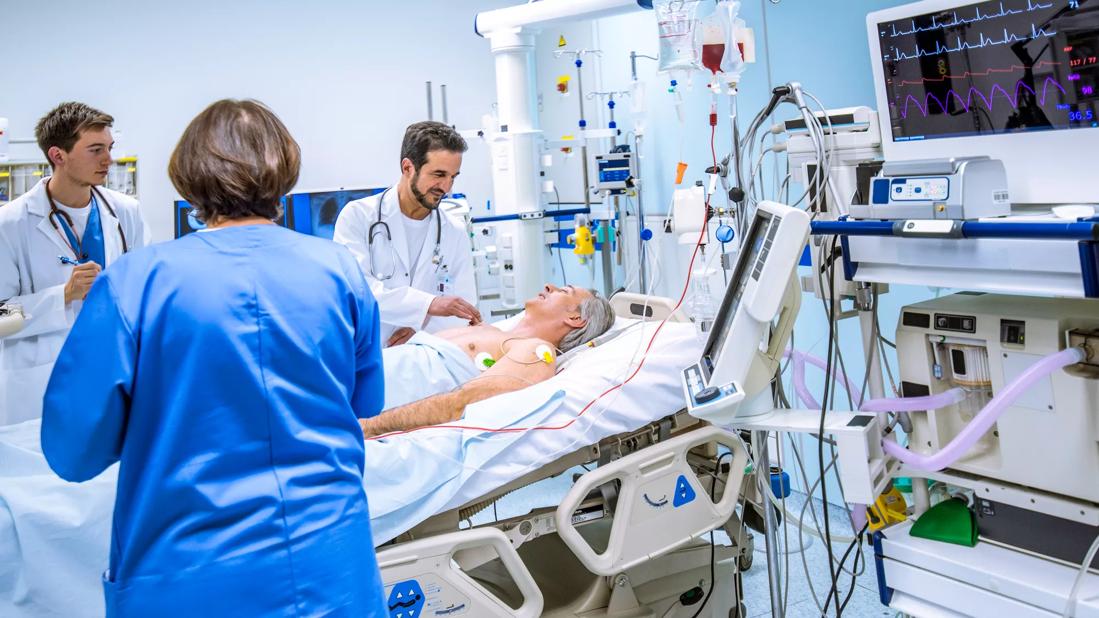Investigators are developing a deep learning model to predict health outcomes in ICUs.

Cleveland Clinic and Purdue University investigators are collaborating on a deep learning model that aims to significantly improve patient care and outcomes in intensive care units (ICUs).
Advertisement
Cleveland Clinic is a non-profit academic medical center. Advertising on our site helps support our mission. We do not endorse non-Cleveland Clinic products or services. Policy
Xiaofeng Wang, PhD, Staff in Quantitative Health Sciences, Abhijit Duggal, MD, Vice Chair, Department of Critical Medicine, and Faming Liang, PhD, Purdue University, are combining their clinical and computational expertise to create a data model that accurately reflects the challenges of treating patients in the ICU.
The ability to predict potential outcomes for individual patients will help ICU clinicians make more informed decisions based on real-time, patient-specific data. Current health prediction models rely on static time points and variables to guide monitoring and treatment, but those conditions can change in a matter of seconds. A patient could respond poorly to a specific medicine or start to develop a condition like sepsis.
A timely, accurate decision is critical to securing a positive outcome, says Dr. Wang.
"Our system seeks to adapt to the ever-changing nature of critical illness," he says. "Our goal is to transform how we understand and manage critical illness, paving the way for more effective and personalized interventions tailored to each patient's unique needs and circumstances."
Those working in critical care need to navigate the dynamic interplay between a patient's medical condition and their response to treatment. Deep learning models are a promising method for quickly synthesizing large amounts of data using sophisticated algorithms. To address these complexities, the team will pioneer a Stochastic Neural Network (StoNet), a type of deep learning model that is designed to process data in a method similar to the human brain.
Advertisement
Researchers can train the StoNet can adapt to meet the unique demands of ICU Electronic Health Record (EHR) datasets. The model will be powered by an innovative adaptive stochastic gradient Markov chain Monte Carlo (MCMC) algorithm. A National Institutes of Health grant will support the team in developing their StoNet, leveraging de-identified, real-life EHR data.
"The complexity of caring for critically ill patients is driven by rapid changes in clinical and laboratory data from hour to hour," says Dr. Duggal. "The ability to leverage real-time data will be a powerful tool to not only provide timely and appropriate interventions, but it will also have the potential to forecast disease trajectories and help clinicians decide the next steps for the treatment."
Advertisement
Advertisement

Transport nurses prepare to manage all patients and acuity levels

Aim is for use with clinician oversight to make screening safer and more efficient

Cleveland Clinic Abu Dhabi initiative reduces ICU admissions and strengthens caregiver collaboration

Automating routine medical coding tasks removes unnecessary barriers

Ideation session generates solutions to medication administration errors

Caregivers spearhead changes that improve patient care, shape hospital culture

Add AI to the list of tools expected to advance care for pain patients

Findings could help clinicians make more informed decisions about medication recommendations